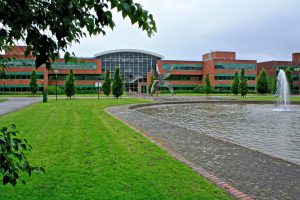What we did in the project
It was decided not to hold study circles in UL, as the FESTA team in UL considered it unlikely that PhD supervisors would participate. Instead, focus groups were held with PhD students in the faculty of Science and Engineering. Three single sex focus groups were held in all, two focus groups with female students and one focus group with male students. The discussions took place in June 2015 and were recorded and transcribed.
The focus of the discussion was on gendered supervision practices. Male and female PhD students reported very different experiences of being doctoral students. Within their research groups and teams, men were unaware of gender, while female students were aware of gender and experienced bias in interaction with their male student colleagues. For both male and female students, the PhD process can be difficult, with lack of information on the process and the lack of organisation/structure.
For both male and female students, there were also issues regarding the supervision relationship. All students rated as important for successful supervision: Supervisors’ accessibility, approachability, communication, feedback, advice, understanding and patience and fairness in management of the research team/group. All students noted the importance of establishing clear expectations and having a shared goal with the supervisor.
These findings were developed into a workshop on Positive PhD supervision, which focused particularly on gendered interactions in the work group, and the ways supervisors can identify and challenge bias.
The workshop covered:
- Supervisor / student characteristics and attributes
- PhD Supervision (power)
- Gender Matters
- Unconscious Bias
- Biases women experience
- Micro-inequities & Micro-affirmations, guidelines for positive supervisory relationships (Process, Relationship and Culture)
The workshop was attended by 10 PhD supervisors from the Faculty of Science and Engineering (6 men and 4 women).
What we learned in the project
PhD education is a crucial period for young academics as they decide whether to pursue an academic or not.
As the relationship between PhD student and PhD supervisor is central to the students’ experience of academic life, this relationship is both powerful and significant, and is one area where gender bias can be addressed and challenged.
By participating in this work package, we have learned that there is significant variation in the levels of gender awareness, both among and between male and female PhD Students and between PhD Supervisors. The power imbalance in the Supervisor/Student relationship, when it intersects with gender bias can lead to women having a more negative attitude towards and experience of PhD education. We know from international evidence that women are more likely to leave academia, because they face problems in supervisory relationships and/or do not feel as much a part of the community and/or struggle with the dominating culture.
Creating awareness of gender bias among PhD supervisors, and having clear processes, procedures and standards for PhD supervision are essential.
Partners in this work package have generously shared their expertise and materials, which were very useful in the development of the workshop in UL.
University of Limerick
Limerick
V94 T9PX
Ireland
Tel. +353-(0)61-202700
Representatives
Professor Pat O’Connor,
Principal Investigator (1) is Professor in the Department of Sociology in the faculty of Arts, Humanities and Social Sciences, with a background in gender.
Professor Ita Richardson,
Principal Investigator (2) is Professor in LERO, a research centre in the Faculty of Science and Engineering, with a background in engineering.
Chair of Steering Committee: Professor Edmond Magner, Dean Faculty of Science and Engineering. Chair of the Steering Committee is Dean of the Faculty of Science and Engineering, with a background in science.
FESTA Project Manager: Dr Clare O’Hagan, FESTA Project Manager, has a background in Human Resources, Training and Gender.
General information
Number of employees (2015): 1,432. Academic/research staff: 855 (28% female) Tech/adm.staff: 577.
Postgraduate education includes: 2159 doctoral students (49% women)
Student body: 11,282 students (48% women)
Educational programmes:
Undergraduate: 79 full time full time undergraduate degree programmes; 20 full time undergraduate programmes in Engineering and 11 undergraduate programmes in Science
Postgraduate: over 90 taught postgraduate programmes (full-time and part-time)
Turn-over: €122.5 Million, €35.42M of which is research funding.
Four faculties: Science and Engineering; Education and Health Sciences, Arts Humanities and Social Sciences, and The Business School.
Project team located in the Science and Engineering and in Arts Humanities and Social Science faculties.


